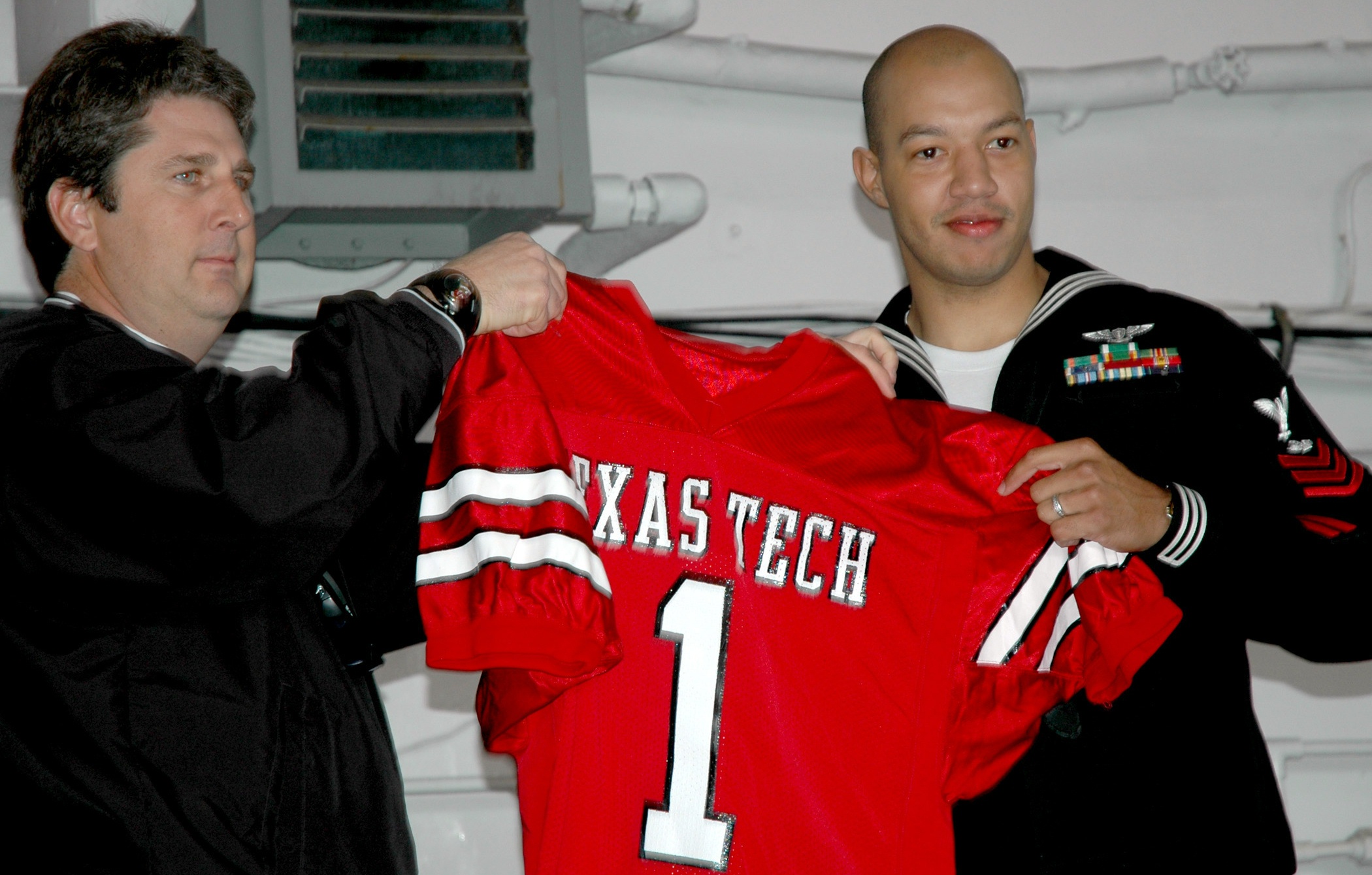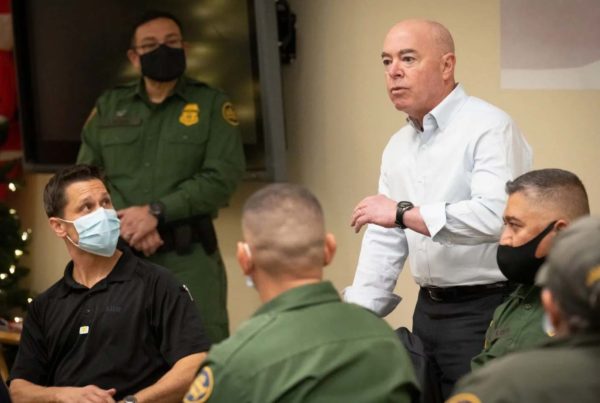Mike Leach, the one-time head coach at Texas Tech and most recently at Mississippi State, died Tuesday at the age of 61 from complications due to heart issues, doctors said.
The winningest college football coach in the history of the Red Raiders program, Leach was considered by many to be among the most influential figures in college football history. His adoption of the air raid offense dazzled opposing defenses and earned him the 2008 College Football Coach of the Year honor.
Jimmy Maas, who covers sports for KUT, joined the Standard to talk about the legacy of Mike Leach. Listen to the story above or read the transcript below.
This transcript has been edited lightly for clarity:
Texas Standard: Before we get into Leach’s accomplishments on the field, we need to talk about Leach as a larger-than-life figure in Texas football. And this was at a time before Texas Tech was considered more than just a Cinderella program when it had some successful seasons. A lot of people called Leach eccentric, an original thinker. What would you say?
Jimmy Maas: Mike Leach was sort of known among coaches as the “mad scientist.” I mean, to my knowledge, he had no science degree; I believe had a law degree. But he did have a predilection to sort of going far afield during press conferences. If he had one-on-ones with reporters, he would show them card tricks. If, you know, he wanted to talk about Native Americans, he wrote a book about Geronimo. I mean, he was kind of all over the map as far as interests and things that drove him. And eventually he would wind his way back to football. But, man, you would go on a path or a journey more realistically during several of the press conferences if he was in the right mood.
Let’s talk about what he did for Texas Tech. One of his innovations was something called the “air raid offense,” which I think many say sort of sparked an entirely new emphasis on passing in college football.
That’s correct. And to be fair, the air raid was actually created by Hal Mumme, who started his coaching life in high school football here in Texas. But Hal Mumme met Mike Leach at Iowa Wesleyan. And Mike Leach, he came from BYU, where he was not a football player – never played college football – but he liked doing plays, drawing them up, watching BYU play football. They used to pass all the time back in those days, still do to some degree. So the two of them put together this idea: “Hey, we can win – because Iowa Wesleyan’s not exactly going to recruit the best players in the nation – so we can win by having our guys do very simple concepts, and we’ll just have the quarterback decide where the defense is not going to be.”
That very basically is what the air raid offense is: a handful of routes, the quarterback decides when they get to the line of scrimmage, what they’re going to do. They don’t do huddles. The play is called at the line, and it’s a high-paced thing, and it tires the defense out. And so you can get an advantage if you’re in the right condition over a better, talented team.
A lot of folks used to talk about his style as coach as sort of being gimmicky.
That’s the thing, right. What he did at Texas Tech: You know, while Hal Mumme deserves credit for the air raid creation, Mike Leach took it from being a gimmick to actually something that worked – and nearly in 2008 put Texas Tech in a position where they could have been playing for the national championship. They lost badly to Oklahoma that year, but coaches rewarded him by making him the 2008 National Coach of the Year.
You know, you think about how Texas football has evolved: You have a team like TCU now in the top four of the AP poll, something that not that long ago would have been considered almost unimaginable. And I know you sort of feel that Leach may have had an influence even there.
Absolutely. Big 12 football is sort of now defined by this offense that was spearheaded by Mike Leach, that Mike Leach made into a thing. It’s run pretty much across the board, save for maybe two schools. So one of those schools, TCU, Sonny Dykes: Sonny Dykes coached under Mike Leach, and of course, his father, Spike Dykes, was the head coach at Texas Tech for many, many years. But Sonny Dykes, he took that air raid influence and took it with him to Cal, where he made Jared Goff a top pick in the NFL draft as quarterback. And now he’s at TCU, where he has turned TCU into a powerhouse, at least this season, for college football and all built on this air raid offense that goes and goes and goes.
What do you think his legacy is there? He’s definitely the personification of “go big or go home,” I think.
If you are a person who sits on the couch and is like, “I love this game and I want to be a part of it,” Mike Leach was you at one point. And, you know, he’s sort of the statue for anybody that wants to go far in this game with not many credentials. I mean, he literally started from nothing and became the winningest coach at Texas Tech, the second winningest coach at Washington State. The guy has a resume built mainly on ambition and guile and, you know, a lot of knowledge baked in there, but you just kind of have to wade through a lot of creative stories to get there.












